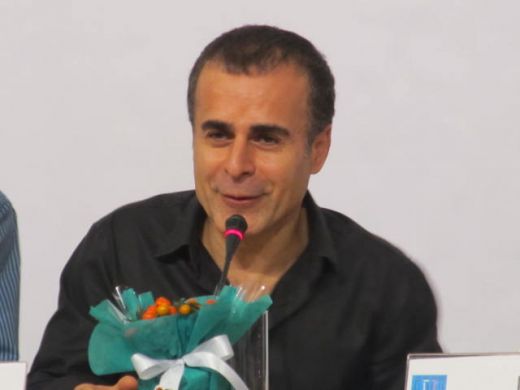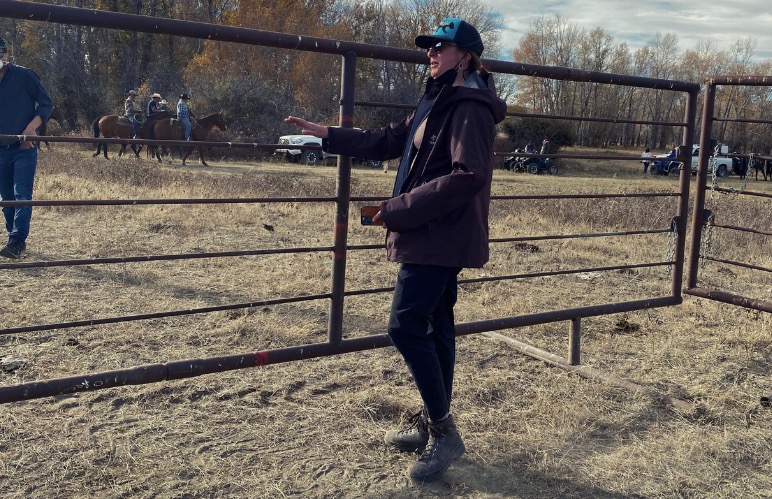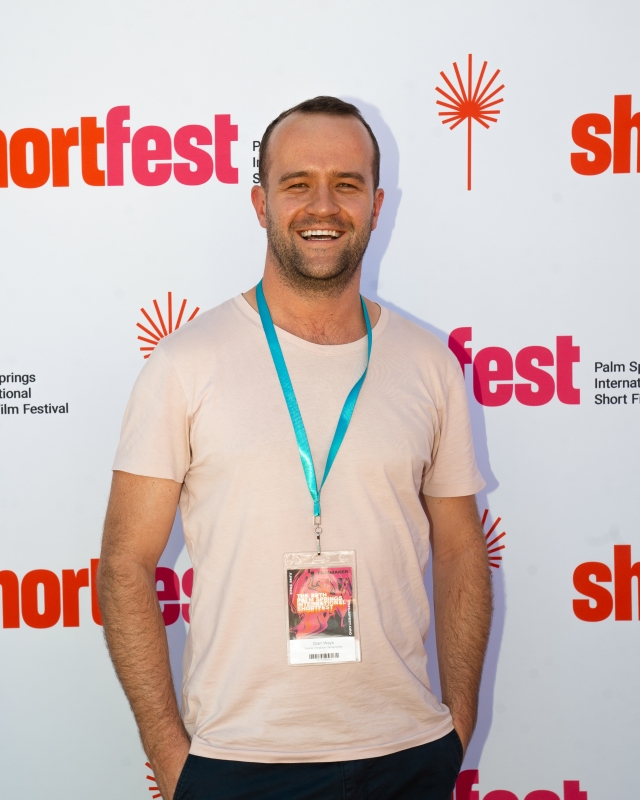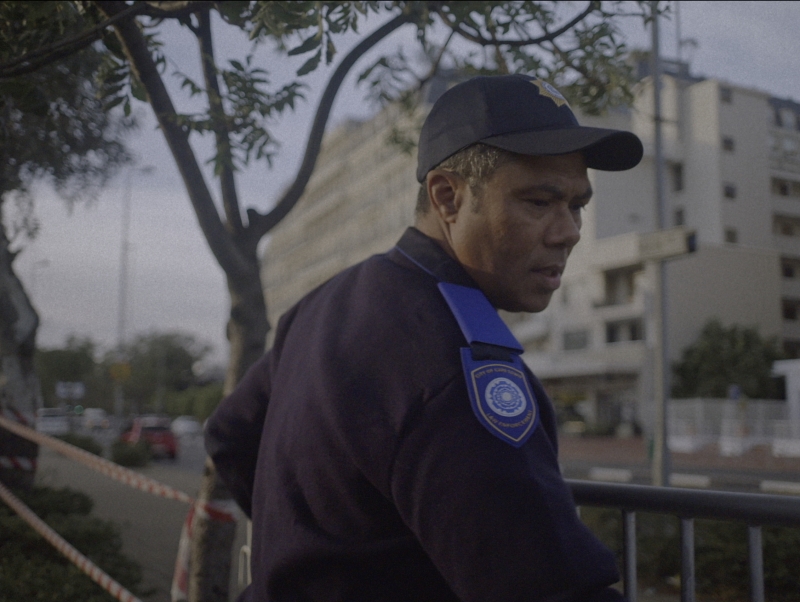|
|
||
|
Pro Tools
FILMFESTIVALS | 24/7 world wide coverageWelcome ! Enjoy the best of both worlds: Film & Festival News, exploring the best of the film festivals community. Launched in 1995, relentlessly connecting films to festivals, documenting and promoting festivals worldwide. Working on an upgrade soon. For collaboration, editorial contributions, or publicity, please send us an email here. User login |
Interview with Bahman Ghobadi at 53rd TIFF
photo by Vanessa McMahon
Interview with Bahman Ghobadi During the 53rd Thessaloniki International Film Festival, Iranian director Bahman Ghobadi was honored for his great oeuvre of films. Five of his films- ‘A Time for Drunken Horses’, 2000; ‘Turtles Can Fly’, 2004; ‘Half Moon’, 2006; ‘No One Knows About Persian Cats’, 2009; ‘Rhino Season’, 2012- were screened during the festival to sold out audiences. I held an in depth interview with Bahman during the festival. Here is what he had to say about being what he calls himself, ‘a filmmaker in exile’.
ME: Your work has been seen by international audiences as being part of a ‘new wave’ movement in Iranian cinema. What exactly is Iranian ‘New Wave’ Cinema? BAHMAN: I started cinema 22 years ago so I don’t think I’m part of the new movement of Persian cinema but I can say I’m a filmmaker in exile where I can express my real feelings and make what I want to make. So this is what I can tell you. ME: Where do you live since you left Iran? BAHMAN: I left Iran three years ago. I wanted to stay there but at that time I knew that I cannot make the films that I want. The year before I left Iran I thought about going somewhere to find my new life and to make some project. I wanted that but I wasn’t ready to leave Iran, but they pressured me and they told me ‘you have to go’. They called me a lot of times. I went to the ministry of the interior and they ask me a lot of questions and they made me scared so I said, ‘ok, if I stay I have to be careful of my life I must go’. So I decided to go. But I’m very happy now. I live in three cities. Two years I was in Istanbul but now I am between Erbil, which is north Iraq, the capital of Kurdistan and Istanbul where I finished two films. But this year I will also go back to NY to start a new project. I have two projects; one in Iran and one in NY and I’m thinking now where to go. ME: On your film ‘Half Moon’ you worked with Iranian actress Golshifteh Farahani who is now currently fighting for women’s rights while living in Paris. BAHMAN: Yes, she is very brave and very strong. Her act is a good example of how brave she is and she is working very hard. She is under a lot of pressure from her people, her culture, the government, and the government pressures her family. ME: You won the Camera d’Or in 2000 for your first feature ‘A Time for Drunken Horses’. Can you speak about the journey you have taken since that victory? BAHMAN: It’s not a long journey. It’s really short actually like yesterday and all the time I worry about the time. I worry about my age because I want to go back to that mountain to make a film like that again. I have a lot of projects and ideas and I don’t know when I can make it. I would love to go back to this area again to make a powerful film full of energy again, but life doesn’t give you the time to do it. But I have and I think I can do this again. Every day I go to exercise to the gym to take care of my body to be still strong. At the same time now I have five projects- one animation, one in Turkey, one in Iraq and one in NY that I told you about. I’m also a producer for two young filmmakers and I also want to make a film festival. I want to make the new digital laboratory … I have a lot of projects. It’s too much but I have to arrange them you know. ME: I hear a lot about films being tough to distribute these days. Was it difficult to get your latest film distributed? BAHMAN: No, it was easy. I’m working still with Wild Bunch but I know the film is very hard to sell because the film is very silent and personal. But I think we can sell to like ten or fifteen countries. ME: So can you tell me about your latest film ‘Rhino Season’ and how this is so different to your previous work? BAHMAN: ‘Rhino Season’ is a very personal film, more than the other films. It’s very close to me and the style and the rhythm of the film is very different to my other films. When I left Iran I became very silent. In Tehran I was super busy, all the time talking and a lot of stuff around me, like when I made ‘The Persian Cats’ which is full of energy. And my last film is completely different than ‘Rhino Season’, which came completely from my soul and my life. I was like this film, so silent. When I left Iran I tried to find my friends to talk but I lost Iran. I lost the Iranian and the Kurdish people. I couldn’t find them to talk as before. It was like I went into myself and for three years the silence attacked me. This silence and this depression came into my film. It was the first time that I thought filmmaking is a remedy for the soul. So I made film to avoid being psychotic. I made film to survive and to stay alive. Cinema is good for this because more than forty or fifty people came from Iran and Kurdistan and I found my life again and now I am busy again. So this was tranquility for my mind, the process of filmmaking in contrast to the three years before that in this situation. This film made me calm. If I was a poet or a writer or a painter I would have only needed pens, paint and paper, but because I am a filmmaker I needed to find myself so this was a very difficult process. To make a film in exile is very hard. ME: Was ‘Rhino Season’ a very difficult film to make? BAHMAN: It was the first time I made a film just for a film. I didn’t look at making this film as work. This was a reflection of my personal situation, reflecting where I was. I was not making a film for others. I was making it to reflect where I was at the time so it was very personal. It’s a reflection of my own soul. ME: What made you decide to cast Monica Bellucci as a Persian? BAHMAN: She looks very close to Iranian. I was making an independent film with low budget so I was not looking to invite a famous actress. I found it very difficult to find an Iranian actress because they would like to return to Iran but with the ideas of this film it was difficult for them to return to Iran. So I ended up inviting Monica Bellucci. ME: Iranian cinema has a reputation as being one of the world’s most lyrical and profound. Can you explain why Iranian filmmakers are such great storytellers? BAHMAN: It comes from the Iranian culture and history. This reflects also its soul and it goes from generation to generation. We have a rich culture so we have a cinema that reflects this variety of culture. Also there is an opinion about the Iranian cinema and we also believe that the censorship makes Iranians want to make better films. But also the Iranian filmmakers working with all this censorship focus on making films about the human situation, not about sex not about violence and so this is why, I believe. ME: You call yourself a filmmaker in exile. How hard is it to make films outside of your home? BAHMAN: When you leave your country it really is difficult to continue your work like before. There is a loss, there is a void and the continuity of the past is missing here. So I am looking how to find this continuity that I had in Iran to continue my work. I wish I were a painter, a poet or a writer because it’s easier to create. But when you are a filmmaker you need a staff, you have to make film; there are lots of things in between. It is not easy and it’s problematic because this process doesn’t happen easily. ME: Do you feel positive about the future of Iran and Iranian freedom in cinema? BAHMAN: I am very hopeful. Very soon in the next two years there will be a lot of changes. I believe that the new generation has so much energy and more than 70% of the Iranian population is young. If the sanctions against the Iranian government works well and if something new happens there is a chance the new generation will begin to make changes.
After the festival, Bahman Ghobadi left for Erbil where he is currently constructing Kurdistan's first film festival.
Interview by Vanessa McMahon, November 04, 2012
photos by Martin Petrov 14.11.2012 | Vanessa McMahon's blog Cat. : Apostrophe Bahman Ghobadi Bahman Ghobadi Cinema of Iran energy Entertainment Entertainment Golshifteh Farahani Interview with Bahman Ghobadi at 53rd TIFF Iran Iranian government Iraq Istanbul Kay Bahman Kurdistan Linguistics Martin Petrov Monica Bellucci Orthography paint Paris Politics Politics Tehran The 53rd Thessaloniki International Film Festival Turkey Vanessa McMahon Interviews
|
LinksThe Bulletin Board > The Bulletin Board Blog Following News Interview with EFM (Berlin) Director
Interview with IFTA Chairman (AFM)
Interview with Cannes Marche du Film Director
Filmfestivals.com dailies live coverage from > Live from India
Useful links for the indies: > Big files transfer
+ SUBSCRIBE to the weekly Newsletter Deals+ Special offers and discounts from filmfestivals.com Selected fun offers
> Bonus Casino
User imagesAbout Vanessa McMahonThe EditorUser contributions |





























 McMahon Vanessa
McMahon Vanessa 


